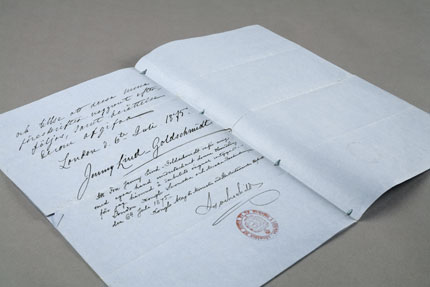Support the music
Thank you for showing your interest in supporting our work for a thriving musical life.
The mission of the Royal Swedish Academy of Music is to promote the role of culture and music in society. This is something we do every day in collaboration with cultural institutions, private individuals, corporations, and other academies and organizations.
Every donation counts, signaling your commitment. As the coffers of the Royal Academy of Music are limited, individual donations can have a tremendous impact.
Larger donations are normally gratefully acknowledged in the form of an invitation to attend the Academy’s annual Gala Session in Stockholm in November and its ensuing Grand Banquet. In such cases, the leadership of the Academy is also eager to offer a special private dinner at another convenient time in its splendid 18th-century premises on Blasieholm Square in Stockholm.
American donors
U.S.-based donors can make tax deductible contributions to the "American Friends of the Royal Swedish Academy of Music". Click here External link, opens in new window.
External link, opens in new window.
The Royal Swedish Academy of Music is hosted at Myriad USA and online giving partner Every.org.
Myriad USA is a public charity, within the meaning of Sections 501(c)(3) and 509(a)(1) of the IRC, donors may claim the maximum tax benefits allowed by U.S. tax law for their contributions. If you wish to support us, here is how to proceed:
At our page at Every.org External link, opens in new window. we accept donations by Cryptocurrency, Venmo, PayPal, Cards, Apple Pay, Google Pay, DAF, Bank, or Stock donations.
External link, opens in new window. we accept donations by Cryptocurrency, Venmo, PayPal, Cards, Apple Pay, Google Pay, DAF, Bank, or Stock donations.
Ways to give
Gifts by check: Write the name of the suggested beneficiary organization in the memo section, and send your check to:
Myriad USA
551 Fifth Avenue, Suite 2400, New York, NY 10176
Gifts by credit card:
check out our  External link, opens in new window.Donate site at Every.org
External link, opens in new window.Donate site at Every.org External link, opens in new window.
External link, opens in new window.
Gifts by wire transfer or to contribute other types of property:
Read about that and more here. External link, opens in new window.
External link, opens in new window.
Your donation can support musical life in the following spheres, for example:

Young Musicians
Each year the Royal Academy of Music awards a large number of grants to young music students and young musicians embarking on their careers. Often these grants are crucial for them to take advantage of opportunities to study at a higher level and to lay the groundwork for a profession as a musician or singer.
Donation target: Free

Children Singing
The role of music in school teaching and syllabuses has declined, and many people are worried that children no longer have true access to their voices. The Academy’s entirely new national platform “Children Singing” is a multi-year developmental project that is international in scope, where everyone involved in contexts of children singing can help accentuate the value of creating space for singing in preschools and schools. Music is both a salutary and an educational force. With Children Singing, the Royal Academy of Music hopes to secure conditions for all children to grow up with their voices as a self-evident resource for greater self-confidence, mental health, inclusion, and learning. The program is directed to children in preschools and schools, as well as individuals who work with children’s singing, either professionally or as volunteers. Children who are alienated, are vulnerable, or have special needs will receive particular attention in the program, as will children suffering from disease or receiving care in a hospital or at home. Collaboration is anticipated with similar programs in the United Kingdom and the Nordic countries.
Donation target: USD 350,000
(Costs for part-time project director and communications director, web costs, incl. newsletter, image rights, video features, social media platforms, seminars, international travel and international conferences, external project grants, educational curricula and development of educational tools—songbooks, teaching materials, video)

Swedish Musical Heritage
There is a significant amount of excellent Swedish music from the past that remains little known and is seldom heard. The aim of the Swedish Musical Heritage project is to enhance our knowledge of this music and to promote its performance. A major share of older Swedish music is notoriously difficult to perform, simply because the existing sources are either inaccessible to musicians, are in the form of illegible manuscripts, or are not practical to use for other reasons. Surprisingly, this even applies to some music by a number of Sweden’s most internationally renowned composers (Wilhelm Stenhammar, Joseph Martin Kraus, Johan Helmich Roman, Hugo Alfvén, to name a few).
Swedish Musical Heritage makes music from several centuries available to musicians free of charge, both in Sweden and abroad. The pillars of the project are:
- A database containing comprehensive information about the composers and their music
- Critical editions of musical scores available free of charge on the website
- Authoritative texts about Swedish musical history
- Recordings (full-length and samplers)
- Donation target for the 2021–2026 period: USD 830,000
(Costs for project director, executive editors, research director, communications director, editors, web development and design, notation compositors, digital editions)

The Alfvén Home and Grounds
Hugo Alfvén, regarded by many to be Sweden’s foremost composer from the period of romantic nationalism, lived in the idyllic village of Tibble outside Leksand in scenic Dalecarlia. He paid many visits to the US as a composer and conductor, including many with his great choir from the Lake Siljan region, Silanskören. His internationally best-known orchestral works are the Suite from the ballet-pantomime The Mountain King, with its fantastic “Dance of the Shepherd Girl,” Swedish Rhapsody No. 1 Midsummer Vigil, Swedish Rhapsody No. 3 Dala Rhapsody, and his Festival Overture, which is always played at the annual Nobel Prize awarding ceremony. Many choirs in the United States are also quite familiar with his choral arrangements of “Out in our meadow” and the beautiful “King Lily of the Valley”.
Alfvén’s unique home was built with a generous donation from the Swedish people in honor of his 70th birthday. It was completed in 1945. In accordance with Hugo Alfvén’s testament, the Royal Academy of Music manages the home and grounds and works to provide an inspiring and vibrant artistic environment for the benefit of composers and painters of coming generations. This important cultural site is open to visitors in the summertime, and, in the winter, visits are welcome, though only by appointment, all with an eye to disseminating and preserving the contributions of Hugo Alfvén to Swedish cultural heritage and music. Activities consist of guided tours, unique chamber music concerts, innovative music workshops for children and youth, events highlighting art songs and vocal recitals as well as choral singing, along with in-depth lectures. Financial donations enable the preservation and upkeep of the Alfvén Home and Grounds as well as support for young musicians and singers, both from the region and from all over Sweden.
Unfortunately, public access to the house is hampered by poorly adapted visiting spaces, restricted accessibility for the disabled, lack of general infrastructure (no café space), etc. Indoor concerts can seat only about 35, which is insufficient to cover honorariums. Outdoor concerts do not function well owing to the lack of a stage and reasonable seating. The yield from the funds that Alfvén left to the Academy is also inadequate to cover personnel costs, renovations, etc. Unless the Academy can make substantial investments to improve accessibility, concert settings, seminars, etc., the Home and Grounds will ultimately face a financial situation where it will no longer be able to be preserved.
The Academy is eager to greatly reinforce educational activities for children and youth at the Home and Grounds, not least in the form of choral singing and summer courses in art song performance, etc. Ahead of Alfvén’s 150th birthday year in 2022, the Academy would like to replace the decrepit dock down by the water with a stage that can also serve as a café space and do landscaping work to enable seating on the slope. With these minor improvements the Alfvén Home and Grounds would be able to arrange outdoor concerts for a seated audience of at least 200. This alone would make it possible to carry out concert activities that can generate a modicum of profit that could accrue to activities and operations, in anticipation of a new building (if such an edifice could be funded in the future). This would also render the grounds and public conveniences accessible to people with disabilities for the first time.
Donation target: USD 580,000
(Costs, minus contributions in the form of locally sponsored lumber, etc.: construction of concert stage with dock and café, technology and electricity installations, storage spaces, road and grounds work, accessibility modifications including a restroom for the disabled, as well as a small café/kitchen space)

The Eric Ericson Award
In collaboration with Radio Sweden, the Royal Academy of Music has taken the initiative to arrange the world’s largest competition for young choir directors, The Eric Ericson Award, with its first final in Stockholm in October 2021. The competition is named after the dean of Swedish choir directors, Professor Eric Ericson, who was extremely active as a guest conductor in the US, and with recurring US tours with his choirs Orphei Drängar (OD), the Swedish Radio Choir, and the Eric Ericson Chamber Choir. Eric Ericson was awarded one of the world’s greatest musical accolades, the Polar Prize, together with Bruce Springsteen in 1997.
The contest is initially planned to comprise three rounds of competitions every three years. It is an international challenge for young choir directors, to be carried out with support from the European Broadcasting Union (where US media outlets ABC, CBS, and NBC, among others, are associate members) and to be broadcast live from Franz Berwald Concert Hall in Stockholm October, 2024. The winner will slated to perform with about ten of the radio choirs that belong to the EBU and will receive a check sponsored by the Rosenborg Gehrman Foundation.
Radio Sweden and the Royal Academy of Music will defray all administrative costs, all planning, a steering committee, contest costs including technology, audio, video, imaging, audience arrangements, rehearsal and concert halls, etc.
Donation target 2024: USD 58,000
(Costs for logistics in connection with the competition—such as hotel accommodations for contestants and jury, local travel, meals, jury costs)
Contact:
adm@musikaliskaakademien.se

Jenny Lind's letter of donation from 1876.
